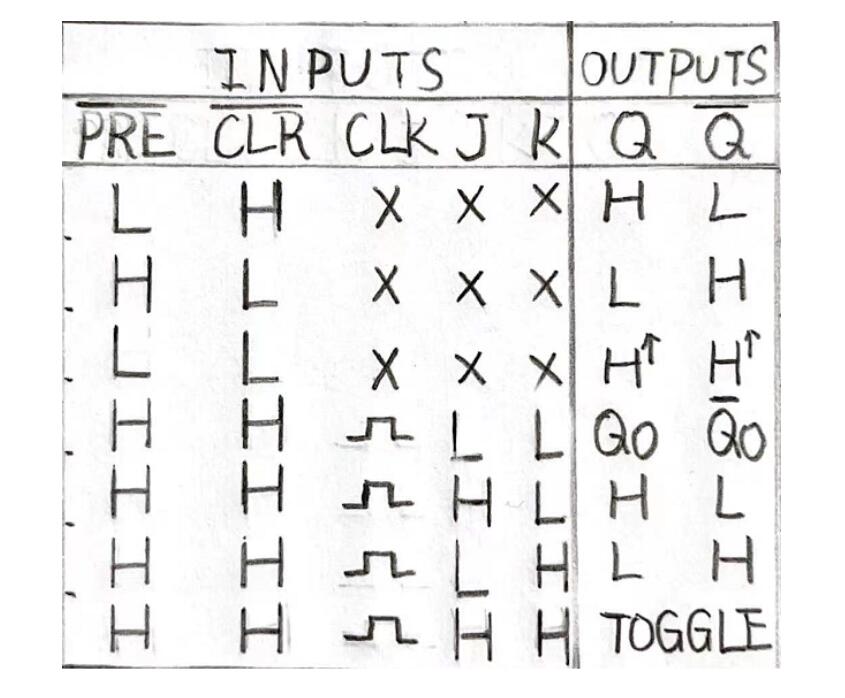Have you ever wondered how the storage of bits happens in digital electronics? If you have, we'll explain how flip flops and the 74ls76 pinout help facilitate that process. Specifically, we'll look at the workings of a JK Flip-Flop.
Before delving into the details of a 74ls76 pinout, we'll first introduce the J-K Flip Flop working principle. We'll also explain its clock signal properties and other pinout details, like storage registers insights.
Contents
What is 74ls76?

Figure 1: A Blue Electronic Circuit Board
A 74LS76 is an IC that is synonymous with JK flip-flops. Its actual application is in the storage of bits, although it is also valuable for other applications. Several features make Jk flip-flops one of the most common kinds. They include the following:
- The clock input property
- Presence of preset input pins
Also noteworthy, the JK flip flops can change their state by applying a clock pulse signal. Note, this clock signal can be a positive edge or a negative. Additionally, the 74LS76 is capable of neglecting invalid outputs.
74ls76 Pinout Configuration

Figure 2: Close Up of Integrated Circuit Boards
Note, the design of the 74ls76 is easy as long as you have simple gates. Also, you need to understand the different types of inputs and the pin configuration. Please take a look at the various pins and their respective functions.



74ls76 Features and Specifications

Figure 3: Computer Hardware Background
The following are some of this flip flop's fundamental features and specifications.
Special Offer: Get $100 off your order!
Email [email protected] to get started!
Features
- Primarily, it's a dual JK flip flop but within 1 IC.
- The 7476A features several packages with a 14 pin PDIP, GDIP, and PDSO.
- A functional clear and preset are two fundamental properties of the 74LS76.
- The IC is synonymous with the TTL output form. Thus, it is compatible with microcontrollers and TTL devices.
- You can operate IC 74LS76 as a single flip flop without interrupting the working of the other flip flops.
Specifications

Figure 4: Close Up of Integrated Circuits
- It has an operating voltage range of 4V to 6V.
- A stable output requires at least a 2V input voltage range for high state operation.
- A minimum of 0.8V input voltage range is enough for the IC's low state operation.
- It has an output voltage draw of 3.5V for the high state. For the low-level output voltage, the interest is 0.25V.
How to use 74ls76

Figure 5: An Electronic Board
Essentially, this IC features two JK flip flops that require a power of about +5V. They include the preset and the clear of the IC. Note, as earlier mentioned, the IC features asynchronous active-low inputs.
Also note, setting the preset and clear to low results in overriding the clock. The overriding is also commonplace with the J-K inputs. Consequently, the output shifts to steady-state levels. Check out the truth table below for a clearer understanding.

Figure 6: A 74ls76 Truth Table
74ls76 Applications
- Useful in the shift register (s)
- The IC is standard in EEPROM circuits
- Essential in latching devices
- Common in memory registers and control registers
Conclusion
We have expounded on the necessary details on the workings of a 74LS76. In case you have further queries, feel free to talk to us. We'll respond to your questions on time.
Special Offer: Get $100 off your order!
Email [email protected] to get started!






